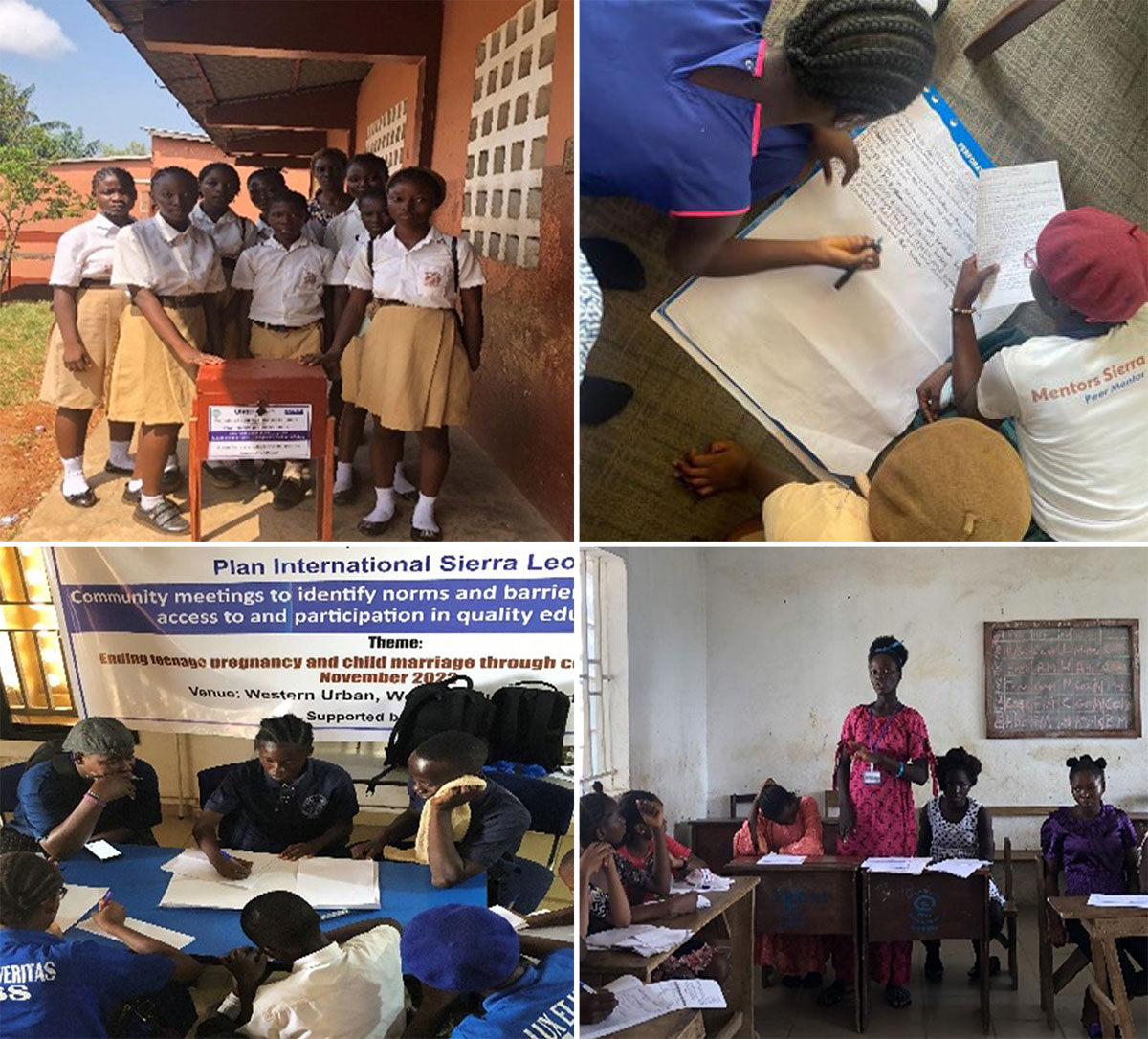
The United Nations Girls’ Education Initiative’s (UNGEI) Gender at the Centre Initiative (GCI) is an international collaboration between civil society and international organizations, aimed at promoting gender equality in education across eight pilot countries in sub-Saharan Africa. In Sierra Leone, Plan International and Education For All Coalition have partnered to enhance girls’ retention in schools by establishing a protective and empowering environment. This initiative operates in four districts, including Moyamba, Port Loko, Western Rural, and Western Urban, in collaboration with eight Ministries, including the Ministry of Basic and Senior Secondary Education (MBBSE), since November 2021.
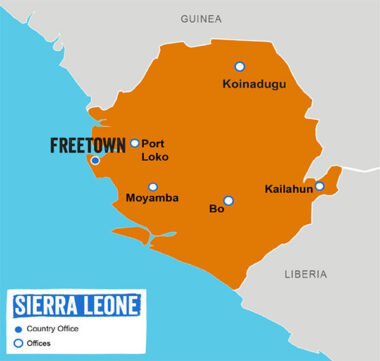
Sierra Leone still faces significant challenges with gender discrimination in political, economic, social, cultural, and justice domains, leading to barriers for women and girls in accessing education. The number of girls enrolled in schools decreases as they progress to higher levels of education. This gender inequality is a fundamental cause of obstacles to sustainable development in the country. Schools are common settings for School-Related Gender-Based Violence (SRGBV), affecting a considerable portion of the young population. SRGBV encompasses various forms of violence, such as psychological, sexual, emotional, and physical, occurring within schools and during journeys to and from school.
The project tackles these issues through multiple approaches, including training, advocacy, lobbying, coaching, and mentoring, aiming to garner significant support for girls by engaging key stakeholders. In collaboration with MBSSE the focus is on addressing the barriers hindering girls’ access to education aligning with MBSSE’s Education Sector Plan and Radical Inclusion policy.
In May 2023, a selected group of female students participated in a session to identify and discuss the challenges they encounter while using governmentprovided school transportation. This aspect is often overlooked, as areas of risk are usually focused on the school or home environment. The recommendations provided by the girls are addressed at the Ministry of Basic and Senior Secondary Education and the Ministry of Transportation advocating for an all-girls school bus.
“We need female teachers or female bus Conductors to ensure our safety on the buses.”
- A Junior Secondary school Pupil, Western Rural
Ten female students from ten junior secondary schools in Freetown, Sierra Leone’s capital, were selected to participate in a one-day session. The primary objective of this workshop was to gather insights into their perceptions regarding the effectiveness of government-provided school buses in meeting their needs.
The session took place in a safe environment, allowing the girls to openly discuss SRGBV issues they encounter within and around schools, involving interactions with teachers and peers. Particular emphasis was placed on their experiences and challenges related to using transportation, such as government-funded school buses. The girls actively engaged in conversations about SRGBV, school safety, and security during their transportation to and from school.
The findings obtained from these discussions are being directed to relevant authorities, including the Ministry of Basic and Senior Secondary Education (MBSSE), the Ministry of Transport, the Teaching Service Commission, and other policymakers. The intention is to address the identified issues and advocate for improvements in school transportation and overall safety measures to safeguard the wellbeing of girls in the transport to school setting.
“I do not feel safe in the bus but I do need to use transport to regularly attend school. So we are asking the Ministry of Basic and Senior Secondary Education to engage Bus Conductors on our safety.”
- A Junior Secondary school Pupil, Western Rural
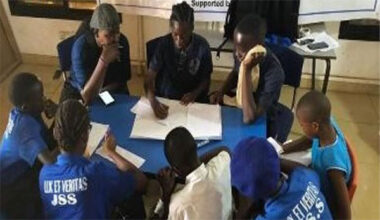
The school transportation service review findings emphasized the safety concerns of girls while using government school buses. The discussions brought up several key points:
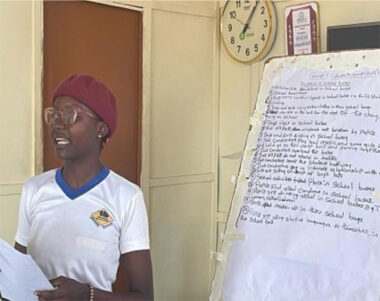
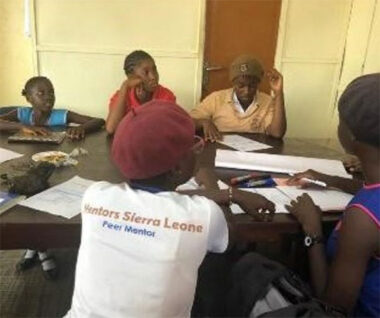
The following recommendations were made by the girls to address SRGBV issues during school bus rides:









